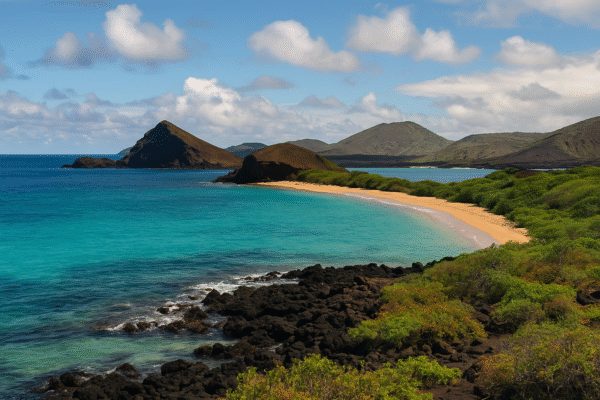The Galápagos Islands—renowned for their breathtaking biodiversity and Charles Darwin’s evolutionary legacy—are emerging as a global model for sustainable travel. As environmental consciousness continues to reshape the global tourism industry, the Galápagos are evolving beyond their iconic status to become a living laboratory for responsible travel, environmental stewardship, and community-driven tourism.
In recent years, increasing tourism has posed complex challenges for the islands’ delicate ecosystems. Yet, these challenges have catalyzed transformation. Today, the Galápagos represent a bold vision of tourism where conservation and exploration go hand in hand. At the center of this transformation is a commitment to customized, eco-conscious journeys supported by local expertise and a network of community-oriented partners.
A Pioneer in Sustainable Travel Models
As one of the world’s first UNESCO World Heritage Sites, the Galápagos Islands have long inspired efforts to protect natural heritage. Now, in response to rising traveler awareness about environmental impact, tourism operators across the islands have adopted forward-thinking strategies. These include low-impact lodging, solar-powered vessels, waste reduction mandates, and strict visitor limits regulated by Ecuador’s Ministry of Environment and Galápagos National Park Directorate.
More than 97% of the Galápagos’ land area is protected, and tourism is allowed only in designated zones under permit. This regulated access ensures that tourism grows responsibly—balancing visitor demand with the long-term preservation of ecosystems. Tourism models are increasingly built around conservation programs, such as coral reef monitoring, habitat restoration, and education for both tourists and local youth.
The Rise of Eco-Conscious and Personalized Journeys
Travelers now have access to highly customized travel options that integrate conservation goals with unique experiences. From small-scale luxury cruises that rely on renewable energy to community-led homestays that introduce visitors to traditional fishing lifestyles, the range of offerings is as diverse as the islands themselves.
Options include:
- Low-impact yacht expeditions with certified naturalist guides.
- Land-based eco-lodges supporting habitat-friendly infrastructure.
- Volunteer-based conservation tours, where guests plant native species or remove invasive plants.
- Locally curated island-hopping experiences with bilingual experts.
These itineraries allow travelers to engage deeply with the islands while contributing to their sustainability. Activities are carefully curated to avoid overcrowding sensitive habitats and often rotate among locations to minimize environmental footprint.
Empowering Local Communities Through Tourism
Beyond the environment, sustainable tourism in the Galápagos is increasingly focused on empowering local communities. Ecuador’s tourism board and local associations have implemented policies that prioritize employment for island residents and reinvest tourism revenue into health, education, and infrastructure projects.
Training programs for naturalist guides, marine operators, and hospitality workers ensure that the tourism workforce is both knowledgeable and rooted in local culture. Women-led cooperatives are gaining traction—running artisan markets, organic farms, and eco-tourism lodges that preserve local traditions while promoting economic independence.
By embedding local knowledge into tourism services, travelers enjoy authentic, immersive experiences while directly supporting the people who call the Galápagos home.
Global Lessons in Responsible Exploration
The Galápagos Islands serve as a microcosm of global efforts to rethink travel in the face of climate change and environmental degradation. Their success proves that ecologically sensitive tourism is not only feasible but highly desirable among modern travelers.
Environmental policies in the Galápagos include:
- Strict waste management and recycling regulations.
- Limitations on the size and number of vessels.
- Guidelines for wildlife interaction to avoid disturbing natural behaviors.
- Carbon offset programs to reduce emissions from travel.
These efforts have earned recognition from international conservation organizations and are cited as best practices for other fragile destinations seeking to balance preservation with economic growth.
Conservation as the Cornerstone of Travel
Ecuador’s government, in partnership with international NGOs, has invested in marine protection initiatives and renewable energy programs across the Galápagos. Over 138,000 square kilometers of surrounding waters have been declared marine reserves—making it one of the largest protected marine areas on Earth.
Visitors today can participate in conservation efforts directly through guided educational experiences. These include snorkeling with sea lions while learning about marine biodiversity, or attending community workshops on invasive species management. For many travelers, these experiences turn vacations into meaningful engagements with nature.
Shaping the Future of Sustainable Travel
As destinations around the world grapple with the pressures of mass tourism, the Galápagos offer a viable blueprint for a more conscious and connected way of exploring the planet. The model being implemented—where tourism supports ecological balance, community well-being, and cultural preservation—signals a wider industry shift.
With global travelers increasingly prioritizing ethics, environmental impact, and authenticity, the Galápagos stand at the forefront of a movement toward smarter, more sustainable tourism.
Conclusion
The Galápagos Islands are not just a destination—they are a declaration of what travel can and should become. Through a fusion of conservation-driven exploration, community empowerment, and low-impact innovation, the islands are proving that responsible tourism isn’t a niche—it’s the future.
As more travelers embrace this vision, the Galápagos continue to inspire a new era of travel: one where exploration fuels preservation and every journey makes a difference.
For more travel news like this, keep reading Global Travel Wire















